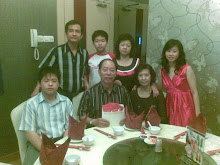Patriot Torqx SSD
Behold the Patriot Torqx SSD. Originally launched under the Fusion name, this Solid State Drive shares the same impressive Indilinx 'Barefoot' architecture that has been used in other popular products for the notebook/desktop storage market. Licensing a product design out to several competing manufacturers has become common with SSDs.
Samsung makes the DRAM modules found in nearly all popular SSD products today, with Elpida and Qimonda also adding their name to cache buffer parts. JMicron, Indilinx, and Samsung engineer many of the most well-known SSDs on the market, with end-manufacturer companies adding their own branding, custom-tuned firmware, and warranty. The Patriot (Fusion) Torqx 128GB MLC SSD is one such product, built from a proven architecture that has done well for others of the same controller family.
Performance enthusiasts have been keeping notes on SSD technology for a while now, and until recently the price and performance of Solid State Drives were not within reach for casual consumers. SSD products are quickly moving mainstream, and former marketing points like power consumption is now the least impressive of all benefits a Solid State Drive delivers. The real payoff is in the practically instant response time and high-performance throughput. Capacity and stuttering were once the only problems keeping SSDs from replacing HDDs, but now it's just capacity.
The Patriot Torqx MLC Solid State Drive adds 64MB of Elpida DRAM to the buffer has permanently solved stuttering problems, making raw performance the last bottleneck. An Indilinx 'Barefoot' internal controller commands the bank of Samsung K9HCG08U1M DRAM modules, allowing the Torqx SSD to offer an impressive capacity with top-speed performance. Benchmark Reviews tests the reaction time and bandwidth performance for the PE000143-PFZ128GS25SSDR 128GB model against over two dozen other products in this article.

Since first making a commercial public debut at the 2007 Consumer Electronics Show, Solid State Drives (SSD's) have been a topic of hot discussion among performance enthusiasts. These nonvolatile flash memory-based drives feature virtually no access time delay and promise a more reliable storage medium with greater performance while operating at a fraction of the power level. Moving into 2008, SSDs became a consumer reality for many performance-minded power users. Now that 2009 has revealed promising industry support for Solid State Drive technology, we should hope that mainstream acceptance moves faster than DDR3 SDRAM has.
Back in November 2007, after experiencing the SuperComputing Conference SC07, finding Solid State Drives on sale anywhere was a real challenge. One year later, and online stores are offering dozens of SSD models at reasonable prices. Solid State Drives are rapidly changing the computing landscape, and many enthusiasts are using SSD technology in their primary systems to help boost performance. Benchmark Reviews has tested nearly all of the products available to the retail market in this sector, and several do well while others fall flat. It used to be that performance was the largest hurdle for mass storage NAND Solid State Drives, followed by stability, and later price.
Solid State Drive products are no longer restricted to bleeding edge hardware enthusiasts or wealthy elitists. Heading into 2009, SSD storage devices were available online for nearly $2 per gigabyte of storage capacity while the most popular performance desktop hard drive hovered just above $1/GB. While most consumers are waiting for that day when SSD costs the same as HDD, they seem to be forgetting how Solid State Drives have already surpassed Hard Disk performance in every other regard. Our collection of SSD reviews is a good starting point for comparing the competition.
According to a Q1 2008 report by the semiconductor market research firm iSuppli, the SSD market will grow at an annualized average of 124 percent during the four-year period from 2008 until 2012. iSuppli now projects SSD sales to increase by an additional 35 percent in 2009 over what it projected last year, 51 percent more in 2010, and 89 percent more in 2011, and continue to show dramatic increases in subsequent years.
Disclaimer: SSD Benchmarks
Benchmark Reviews recently published an article which details Solid State Drive (SSD) Benchmark Performance Testing. The research and discussion that went into producing that article changed the way we now test SSD products. Our previous perceptions of this technology were lost on one particular difference: the wear leveling algorithm that makes data a moving target. Without conclusive linear bandwidth testing or some other method of total-capacity testing, our previous performance results were rough estimates at best.
It's critically important to understand that no software for the Microsoft Windows platform can accurately measure SSD performance in a comparable fashion. Synthetic benchmark tools such as HD Tach and ATTO Disk Benchmark are helpful indicators, but should not be considered the ultimate determining factor. That factor should be measured in actual user experience of real-world applications. Benchmark Reviews includes both bandwidth benchmarks and application speed tests to present a conclusive measurement of product performance.
About Patriot Memory (PDP Systems, Inc.)
Established in 1985, Patriot Memory builds a full range of memory module and flash memory products, offering a perfect blend of quality and value. Patriot products include Extreme Performance (EP), Signature Lines (SL) and Flash Memory solutions (FM).
Patriot has sales offices located throughout the U.S. and Asia. Patriot sells through the distribution channels throughout North America, Europe, Asia Pacific, Middle East, Africa, and Latin America.
Patriot's development and manufacturing facility are located in Fremont, California USA. Our manufacturing segment is composed of a highly skilled production staff and multiple production lines optimized for modules, giving Patriot the ability and resources necessary to provide a full line of memory module solutions. Patriot Memory is a trademark of PDP Systems, Inc.


















0 comments:
Post a Comment